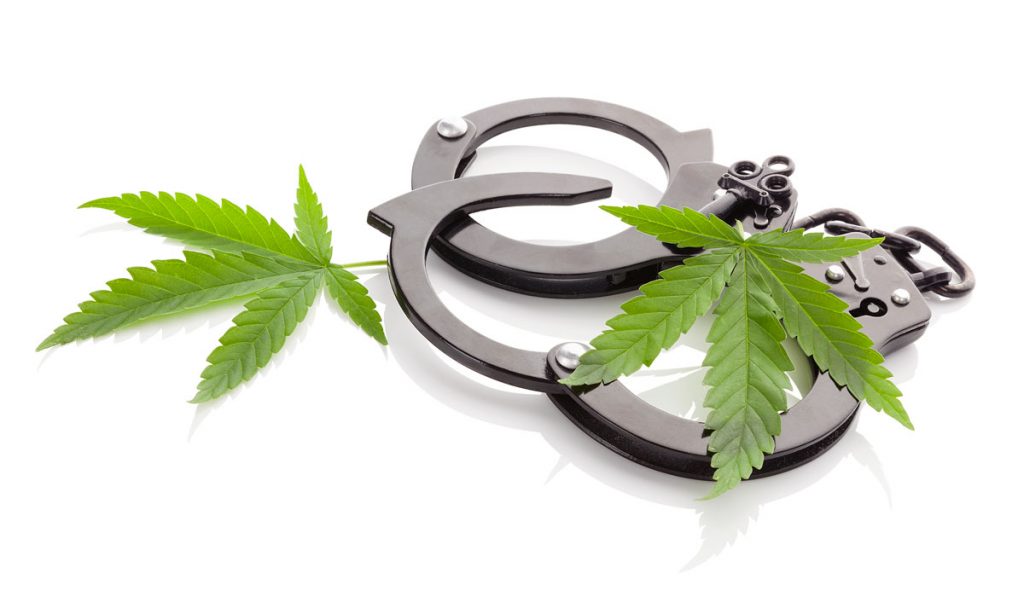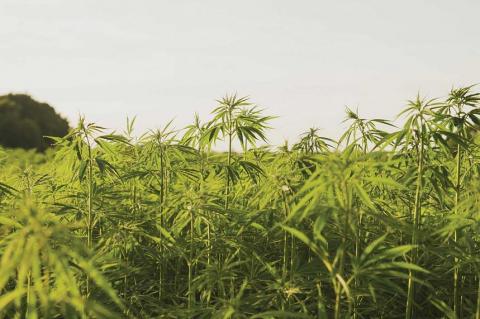Hemp, which is closely related to marijuana but has no psychoactive effect, has been legal to grow in Tennessee for a little more than five years through a closely monitored pilot program.
Hemp has been an important crop throughout the history of the United States. By the mid-1600s, hemp had become a vital part of the colonial economy and was used to produce rope, cloth, canvas, sacks and paper. In fact, the first drafts of the Declaration of Independence were penned on hemp paper.
Although industrial hemp contains very little of the hallucinogenic properties of marijuana -- production and processing declined after World War II with the passage of state and federal laws aimed at regulating the narcotic varieties of cannabis.
In December of 2018 another passage of the Farm Bill opened the door for even more growers and sellers.
"It deregulated hemp as a schedule one controlled substance,” explains attorney Stephanie Savage of
Miller & Martin. “It created an interstate commerce exception which means states cannot prohibit the lawful transportation of hemp across state lines. It also directed the USDA to promulgate a hemp production plan where states can submits plans for approval or they can gave USDA licensure."
State records show that most licensed growers are hobbyists, farming only a few acres, but commercial-scale hemp farming is increasing quickly, in part because the industry is recruiting struggling tobacco farmers.
Sequatchie County’s Haygood Farms has been growing industrial hemp since the spring of 2018.
There are so many things you can do with this plant, it's remarkable,” says Llew Boyd. “And I think that this plant will become a commodity and replace things like cotton. For many different reasons, it's more economical to grow and it produces higher yields of textiles at a lower cost."
While many farmers focus on the textile portion of hemp production, others focus on the flower aspect of farmed hemp so it can be harvested for human consumption in CBD products. It can be up to the farmers across the state to choose which strands to grow.
“We mainly focus on the cannabinoids,” says Boyd. “We like to think that we're cannabinoid farmers instead of industrial hemp farmers."
CBD is one of many compounds, known as cannabinoids, in the cannabis plant. Hemp and marijuana come from the same plant, Cannabis sativa, but the two are very different. Hemp contains most of the CBD that people use medicinally. THC creates a mind-altering "high" when a person smokes it or uses it in cooking. This is because THC breaks down when heat is applied and introduce it into the body. CBD is different. Unlike THC, it is not psychoactive. This means that CBD does not change a person's state of mind when they use it. However, CBD does appear to produce significant changes in the body, and some research suggests that it has medical benefits.
Landrace Bioscience in Chattanooga is in the hemp business. Their mission is to manufacture hemp extracts to produce high-grade products containing cannabinoid profiles.
"There are actually over 400 chemical entities inside the hemp plant,” explains CEO John Demoss. “Those 400 entities need to be extracted and then made into different ingredients that the manufacturer of consumer products would ultimately used in creating their product."
None of these business opportunities would be available without the passage of the 2018 Farm Bill -- that de-scheduled hemp as a controlled substance.
"So what that really did was it allowed many more scientists and companies exploring potential benefits,” explains Demoss. “And it's been fascinating how many different clinical studies and pre-clinical studies and research projects generally have been advancing the understanding of the different molecules in the plant."
All cannabinoids, including CBD, produce effects in the body by attaching to certain receptors. The human body produces certain cannabinoids on its own. It also has two receptors for cannabinoids, called the CB1 receptors and CB2 receptors. CB1 receptors are present throughout the body, but many are in the brain. The CB1 receptors in the brain deal with coordination and movement, pain, emotions, and mood, thinking, appetite, and memories, and other functions. THC attaches to these receptors. CB2 receptors are more common in the immune system. They affect inflammation and pain.
Store owners like Elisha Millan at Grass Roots in downtown Chattanooga are using locally grown and produced hemp. Knowing where the product being sold on her shelf came from-- and that is has been tested is of the utmost importance.
"What you can expect from good, quality products and good quality businesses is that they will have all of their lab work to be able to hand to you immediately,” she says. “And they are going to be able to talk to you about what all of those numbers and all of those percentages mean."
With the realities of the opioid crisis coming to light, many of her clients come in with more questions and concerns than ever before.
"The majority of my customer base are people ages 50-65 who are new to cannabis, who have never used it before,” explains Millan. “But they are facing a surgery...whether they are having their first knee surgery or some procedures on their back, they're more concerned about the risk of becoming addicted to the pain medicine than they are of their actual pain level or about the surgery itself. And it's so surprising when you hear someone come in and say those things. They are sure about certain parts of their healthcare. They're not sure that their healthcare won't get them addicted to something."
It's a changing landscape for many of those associated with help production, but there are resources available to ensure compliance and success.
“This is an emerging industry the laws are still developing,” says attorney Stephanie Savage. “And so navigating the laws as they change can be very difficult. The Tennessee Department of Agriculture is doing everything that they can to help people understand the laws as they change. They have frequently asked questions on their website, and they have a lot of information about growing hemp in Tennessee, the application process...whether you're growing hemp or processing hemp, what steps are required."




